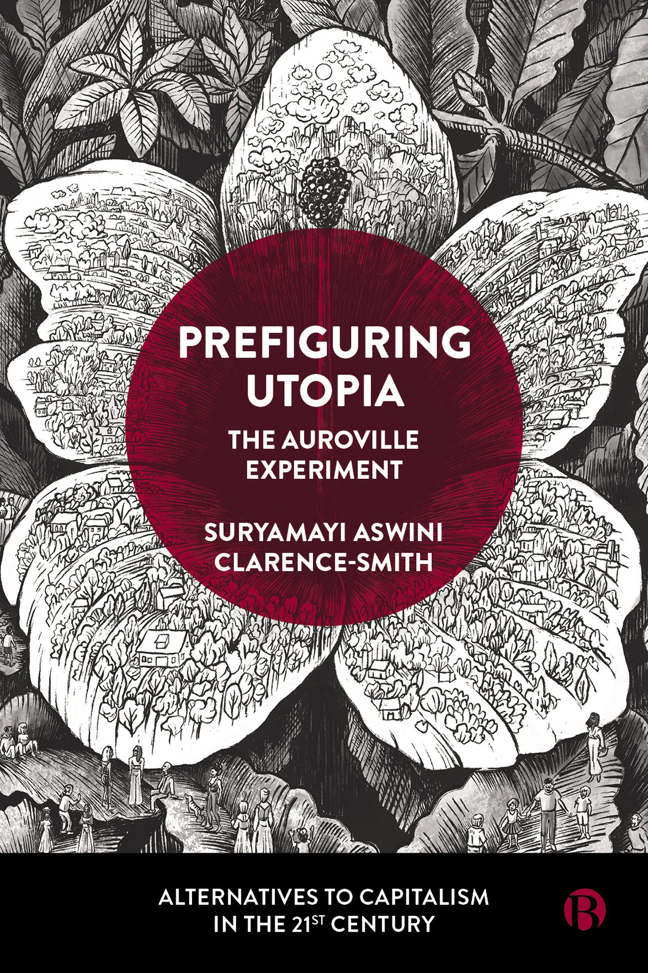Book contents
- Frontmatter
- Dedication
- Contents
- List of Figures and Tables
- Glossary
- About the Author
- Acknowledgements
- Foreword
- 1 All Life is Yoga: An Introduction
- PART I Culture
- PART II Polis
- PART III Economy
- Afterword
- Appendix A A Dream (The Mother, 1954)
- Appendix B The Auroville Charter (The Mother, 1968)
- Appendix C To Be a True Aurovilian (The Mother, 1971)
- Notes
- References
- Index
6 - ‘No Exchange of Money’? The Development of Auroville's Communal Economy
Published online by Cambridge University Press: 24 January 2024
- Frontmatter
- Dedication
- Contents
- List of Figures and Tables
- Glossary
- About the Author
- Acknowledgements
- Foreword
- 1 All Life is Yoga: An Introduction
- PART I Culture
- PART II Polis
- PART III Economy
- Afterword
- Appendix A A Dream (The Mother, 1954)
- Appendix B The Auroville Charter (The Mother, 1968)
- Appendix C To Be a True Aurovilian (The Mother, 1971)
- Notes
- References
- Index
Summary
Introduction
[I]t is questions … of the proper organisation and administration of the economic life of the society which are preparing the revolutions of the future.
Sri Aurobindo, 1997: 449It was clear from the inception of Auroville that its economic organization would be critical for prefiguring a spiritualized society. This grounding of a utopian project in the material conditions of life is characteristic of what Marxist utopian scholars define as ‘real’ (Wright, 2010) or ‘concrete’ (Bloch, 1986) utopias. To this day, the topic of how to prefigure such an ‘Auroville economy’ is alive, being a source of both aspiration and frustration, and wrought with challenges, not only legal and financial but also of competing visions and approaches to economic administration in Auroville. Here, we will explore how the community's founding economic ideals continue to galvanize, underpin and inform the emergence and evolution of Auroville's communal economic framework, institutions and policies to prefigure an alternative embedded in a mainstream capitalist context by engaging in a critical and reflexive process.
We will begin with understanding the founding economic ideals for Auroville and the roots of Auroville's economic organization in that of the Sri Aurobindo Ashram, and then investigate the early history of the community's economy and how its communal character and administration has (d)evolved over more recent years, and under which pressures. Specifically, I will be drawing on autoethnographic insights into the management of Auroville's ‘central fund’, or municipal budget, and the ‘Maintenance’ (or economic support) of Aurovilians to explore attempts to balance collective and individual provisioning, as per the community's socio-economic ideals. Revealing the means and praxis of prefiguring the community's socio-economic ideals, including the ongoing efforts and trials faced by fellow community members in doing so, this rich case study will be particularly relevant for practices of participatory budgeting and non-monetary forms of provision, universal basic services, and basic income policy programmes.
Sri Aurobindo Ashram: the roots of Auroville's economic organization
Auroville did not start with a blank slate in terms of its economic imaginary; The Mother had already created a unique economic unit out of the Sri Aurobindo Ashram in Pondicherry, in which she prefigured a model for economic organization congruent with the ideals of a spiritualized society of Integral Yoga, as well as spiritualized approaches to economic activity.
- Type
- Chapter
- Information
- Prefiguring UtopiaThe Auroville Experiment, pp. 101 - 123Publisher: Bristol University PressPrint publication year: 2023



